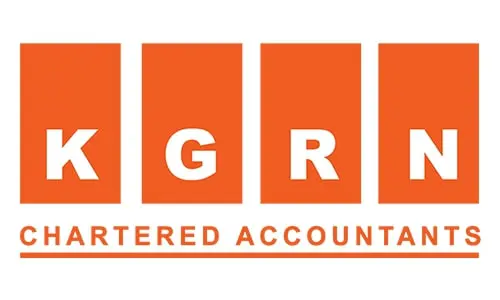As the deadline for reporting Ultimate Beneficial Ownership (UBO) data to the Jebel Ali Free Zone (JAFZA) approaches, arguments over UBO of UAE-based companies (5th June 2021) reappear on the agenda. In addition, the government of the UAE has strengthened its UBO system to prevent money laundering and the funding of terrorist organisations. Other elements include: The Ministry of Economy of the United Arab Emirates has adopted a plan to identify the ultimate beneficial proprietors of the nearly 400,000 legally registered businesses in the country.
Organisations in the United Arab Emirates that have not yet established the Real Beneficiary Register (RBR) and the Partners or Shareholders Register (PSR) should exercise extreme caution. The newly authorised action plan has the potential to reveal their infraction, resulting in severe penalties (the government has not yet disclosed the amount). Therefore, it is essential to inform investors and businesses about the significance of UBO registrations in the United Arab Emirates. Please read the remainder of this article.
Registration of Beneficiaries in the United Arab Emirates
Companies in the United Arab Emirates are obliged to maintain the data of the Beneficial Owner in a register of the legitimate beneficial owner, as stipulated in Article 8 of Cabinet Decision No 58 of 2020 (the 2020 Cabinet Decision).
The real or ultimate beneficiary is a person who directly or indirectly owns or controls a quarter of the capital, or 25 percent of the capital. As an alternative, it might be defined as a person who has voting rights over at least 25% of the shares or who has ultimate control over a “legal person.”
According to the laws, the register must be completed within 60 days following the publication of the law or the day on which the Legal Person comes into existence, whichever is later. Aside from that, the organisation is required to amend and record any changes to information included in the Register of Beneficial Owners within 15 days after becoming aware of the change.
The Real Beneficiary Register (RBR) should include the following information on the beneficiaries:
- The Real Beneficial Owner’s full name, nationality, date and place of birth are required.
- Location of a person’s house or address to whom authorities may issue warnings in accordance with the law
- The number of the passport or identification card, the country of issue, the date of issuance, and the expiration date are all included.
- The rationale for the person’s inclusion as a Beneficial Owner of the UAE organisation, as well as the date on which this occurred.
- The date on which the individual’s status as a Beneficial Owner of the UAE organisation was terminated.
A list of partners or shareholders is maintained.
In addition to the RBR, UAE enterprises are required to maintain and update a Partners or Shareholders Register (PSR). The PSR offers information about the partners or shareholders of the organisation. Within 15 days of being discovered, any modifications to the Register must be updated and notified by the organisation. The following information is required to be included in the Register of Partners and Shareholders:
- Each shareholder’s shareholdings, including their classifications and voting rights, are shown in detail in Table
- The date on which the partners or shareholders became capable to performing such functions inside the UAE organisation.
- In the case of natural partners or shareholders, the complete name as it appears on the identity card or passport, nationality (including country of origin), residence (including city and state of birth), employer (including name and address), and a genuine copy of a valid passport or ID are required.
- Under Clause (1) of Article (4) of the Cabinet Decision, the following information is required in the event of business partners or shareholders: Name, legal structure, and memorandum of association of the company are all included in this section.
The principal place of business, as well as, in the case of a foreign legal entity, the name and address of its legal representative in the state, all of which must be supported by approved documents. Incorporation by the State’s Relevant Entity of Articles of Association or other comparable instruments.
The names of significant individuals who hold top management positions within the Legal Person, as well as information from their passports or identification cards, such as the numbers, issuance and expiration dates, and the authority that issued the passport or identity card (where applicable).
Nominees for the Board of Directors
The Nominee Board Member shall notify the Legal Person and produce the appropriate documentation within 15 days after becoming a nominee board member, according to Article 9 of Cabinet Decision No. 58 of 2020. Within 30 days of the Cabinet Decision’s publication date, a nominated board member who has attained such status must notify the Legal Person of the development.
Any change to the information included in the PSR must be disclosed to the Legal Person by a member of the Nominee Board within 15 days of the change. Following his or her resignation from the Nominee Board, the nominee board member must notify the Legal Person within 15 days of the resignation or dismissal. United Nations Organization (UBO) experts in the UAE will guarantee that the organisations are compliant with UBO laws.
When Should Insolvent Corporations Dispose of Their UBO Registers?
If a company goes out of business, the Regulatory Authority (UBO) needs to know who the ultimate beneficial owner is. The legal person, administrator, and receiver must keep the Real Beneficiary Register and the Partners or Shareholders registers for at least five years after the date of bankruptcy for them to be valid. Talk to well-known UBO experts in the UAE about how to keep UBO records up-to-date while a business is being shut down.
The UBO Registration Process in the UAE
The UBO registration process in the UAE is relatively straightforward. Businesses must submit a UBO register to the relevant authorities, which includes the following information:
- The name of the company
- The company’s registration number
- The name and nationality of each UBO
- The date of birth of each UBO
- The residential address of each UBO
- The percentage of ownership or control held by each UBO
The UBO register must be submitted to the authorities within 60 days of the company’s incorporation or registration.
The UBO registration process can be completed online or in person at the relevant authorities. The online registration process is the most efficient way to register UBOs.
To register UBOs online, businesses must create an account on the website of the relevant authorities. Once an account has been created, businesses can submit the UBO register by uploading the required documents.
The documents that must be uploaded include:
- A copy of the company’s registration certificate
- A copy of the passports of the UBOs
- A signed declaration by the company’s directors stating that the information in the UBO register is accurate
Once the UBO register has been submitted, the authorities will review the information and approve the registration. The approval process usually takes a few days.
The following are the services that KGRN Consultants may give.
For the purpose of increasing openness, the UAE government has mandated the maintaining of UBO Registers. When it comes to combating money laundering and terrorist funding, UBO Registers serve as a catalyst for change. Through the elimination of corruption and fraud, and the assistance of a broad variety of enterprises in their endeavours to do proper due diligence, it will have a beneficial economic impact. Maintaining UBO records may seem to be a difficult task for firms to do, but the aid of UBO specialists in Dubai, such as KGRN Business Consultants, would be beneficial. We will ensure that the RBR and PSR are constructed in accordance with the legislation and will assist you in keeping them up to date.





